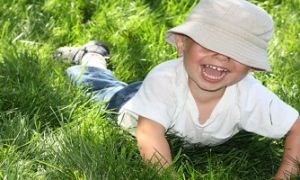

In early childhood services, leadership is relational. Whether you're guiding a new educator or supporting a seasoned team member through change, knowing when to coach and when to mentor is essential. These approaches aren’t interchangeable; they serve different purposes, require different skills, and yield different outcomes. This cheat sheet helps leaders distinguish between coaching and mentoring, apply each effectively, and embed both into everyday practice.
In the fast-paced world, leadership isn’t just about compliance or curriculum; it’s about connection. One of the most powerful, yet often overlooked, tools in a leader’s toolkit is the humble check-in ritual. These moments of intentional pause can transform team dynamics, foster psychological safety, and embed a culture of care into the everyday rhythm of a service.
The following article provides 5 examples of risk assessments tailored for early childhood services, including Local Park Excursion, Art & Sensory Play, Loose Parts Construction Zone Risk Assessment, Fire Drill & Emergency Evacuation, and Dramatic Play with Costumes & Props, and more.
A: Under Regulations 101–102D, approved providers and educators must conduct risk assessments for activities that may pose risks to children’s health, safety, or well-being.
National Children’s Week (18th - 26th October) is more than a calendar event—it’s a call to action. A reminder to pause, reflect, and truly listen to the voices of children. In early childhood settings, where play, learning, and relationships intertwine, this week offers a powerful opportunity to centre children’s rights, celebrate their contributions, and elevate their lived experiences.
“Every time a child runs into my arms like I’m their whole world—that’s when I know I’m exactly where I’m meant to be.”
In early childhood education, empowered teams are the heartbeat of quality practice. When educators feel valued, heard, and supported, they don’t just comply—they co-create. Team empowerment isn’t a management strategy; it’s a relational commitment to emotional safety, shared purpose, and professional growth.
The concept of supervision zones is a practical strategy to enhance child safety and educator accountability where educators are assigned to actively supervise and engage with children.
A: As the end of the preschool year approaches, preschool educators begin preparing for graduation ceremonies—complete with miniature caps, choreographed performances, and proud photo ops. While these events can be joyful and affirming, they also invite deeper reflection. Is a formal graduation truly necessary in early childhood education? Or are there more developmentally appropriate, emotionally intelligent ways to honour children’s growth? This question opens space for reimagining what transition rituals could look like—and who they’re really for.
In a landmark move to enhance oversight and accountability across Australia’s early childhood education and care sector, Education Ministers have commissioned ACECQA to develop a New National Educator Register. This foundational digital system will provide regulators with clearer visibility of who is working in the sector and where—supporting safer, more transparent practices for children, families, and providers.
 Toddlers have a greater understanding of the world around them by this stage. Their cognitive development (also known as intellectual development and thinking skills) continues… Read More
Toddlers have a greater understanding of the world around them by this stage. Their cognitive development (also known as intellectual development and thinking skills) continues… Read More
 Infants begin to develop trust when parents begin to fulfil their needs. Such as changing an infant's nappy when needed, feeding on request and holding… Read More
Infants begin to develop trust when parents begin to fulfil their needs. Such as changing an infant's nappy when needed, feeding on request and holding… Read More
 Beginning at birth the construction of thought processes, such as memory, problem solving, exploration of objects etc, is an important part of an infant’s cognitive… Read More
Beginning at birth the construction of thought processes, such as memory, problem solving, exploration of objects etc, is an important part of an infant’s cognitive… Read More
 Toddlers want to do more on their own and do not like it when you begin to establish limits on their behaviour. Tantrums can become… Read More
Toddlers want to do more on their own and do not like it when you begin to establish limits on their behaviour. Tantrums can become… Read More
 Your preschooler is now able to focus their attention more accurately and is less influenced by distractions. The intensity of questions increase as your child… Read More
Your preschooler is now able to focus their attention more accurately and is less influenced by distractions. The intensity of questions increase as your child… Read More
 John Dewey is often seen as the proponent of learning by doing – rather than learning by passively receiving. He believed that each child was active,… Read More
John Dewey is often seen as the proponent of learning by doing – rather than learning by passively receiving. He believed that each child was active,… Read More
 Toddler advance and gains new skills in Gross Motor Development milestones achieved throughout earlier years. Co-ordination and challenges that could not be performed before such… Read More
Toddler advance and gains new skills in Gross Motor Development milestones achieved throughout earlier years. Co-ordination and challenges that could not be performed before such… Read More
 Erik Erikson developed a psychosocial theory to understand how we each develop our identities through eight stages of psychosocial development from infancy to adulthood. The… Read More
Erik Erikson developed a psychosocial theory to understand how we each develop our identities through eight stages of psychosocial development from infancy to adulthood. The… Read More
 At this point preschoolers begin to interact effectively with others. Play becomes more innovative and organized and “boyfriend” or “girlfriend” begins to emerge. Preschoolers have… Read More
At this point preschoolers begin to interact effectively with others. Play becomes more innovative and organized and “boyfriend” or “girlfriend” begins to emerge. Preschoolers have… Read More
 From now, babies begin to identify and respond to their own feelings, understanding other's feelings & needs and interact positively with others. A baby's social and… Read More
From now, babies begin to identify and respond to their own feelings, understanding other's feelings & needs and interact positively with others. A baby's social and… Read More

Some children find it difficult to process the information received from their senses. Those who...
See more...
Among the most significant indicators of emotional well-being is positive self-esteem. Like with many other...
See more...
The years between five and twelve are a time brimming with activity for children –...
See more...© 2009-2025 Aussie Childcare Network Pty Ltd. All Rights Reserved.
